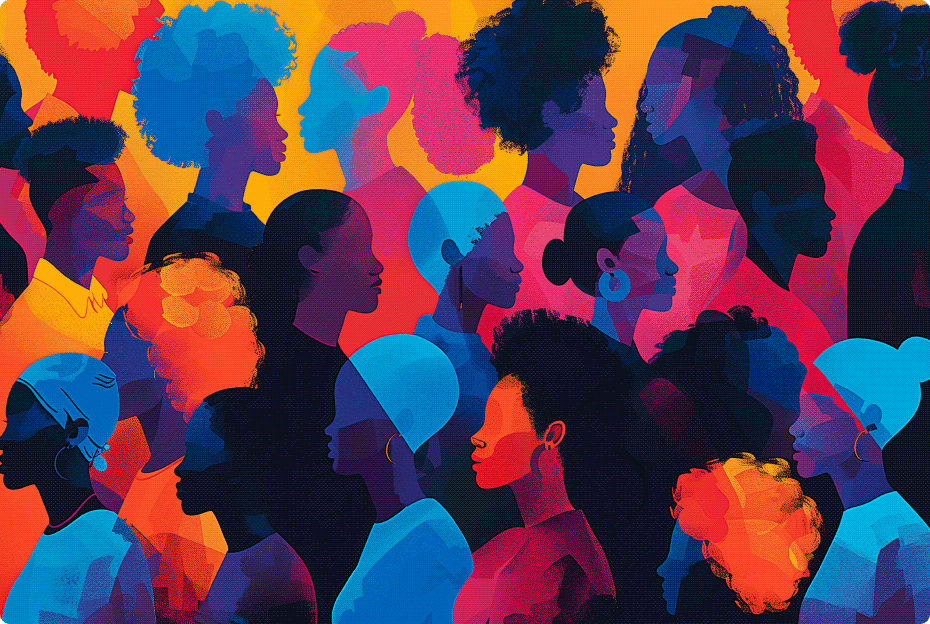
At the intersection of Black history and neurodiversity, several remarkable individuals have achieved greatness in their respective fields while challenging stereotypes around ADHD. Their stories demonstrate how, when intentionally channeled and supported, characteristics often viewed as challenges can become powerful tools for success.

Simone Biles: Redefining gymnastics excellence with ADHD
Dedicating her life to transforming her ADHD traits into superpowers on the gymnasium floor, Simone Biles has become the most decorated gymnast in history. Speaking about her ADHD experience and its role in her athletic career, she has quickly become an advocate for the comprehensive management of mental health struggles — for ADHD and beyond.
Coach Aimee Boorman, who trained Simone from 2005 until 2016, worked with Biles’ natural tendencies rather than against them. Developing training methods that capitalized on Biles’ high energy and need for dynamic movement; breaking down complex routines into smaller, more manageable segments; and incorporating frequent movement breaks to help maintain optimal focus, Boorman’s intentionality in repurposing Biles’ ADHD characteristics continues to play a pivotal role in the athlete’s legacy.
In addition to the support of her family, her coach, and the organization, Biles has credited her success to the comprehensive management of her ADHD. Coupled with therapy and mental health coaching strategies, she has been open about her personal experience with prescription medication and her efforts to break the stigma surrounding them. Soon after the news of her mental health condition surfaced publicly, Simone took to Twitter to let her followers know that “Having ADHD, and taking medication for it is nothing that I’m ashamed of nothing that I’m afraid to let people know.”
As she told TIME Magazine in 2016, “ADHD isn’t a negative. It’s just who I am … If I could write a letter to my younger self, I’d tell her that she is not defined by ADHD but empowered by it.”¹
Daymond John: ADHD kickstarting entrepreneurial innovation
FUBU founder and “Shark Tank” star Daymond John received his ADHD diagnosis as an adult, but the traits associated with the condition had already shaped his entrepreneurial journey.
After his diagnosis, John worked with both a therapist and an ADHD coach to develop personalized strategies for managing his symptoms while leveraging his natural strengths. He found that a combination of cognitive behavioral therapy and medication helped him maintain focus during crucial business meetings and improve his organizational skills. The structured support system allowed him to better harness his hyperfocus abilities, channeling them into productive business ventures rather than scattered efforts.
John has spoken about how understanding his ADHD diagnosis helped him develop better business strategies and time management skills. “If you also think a lot like I do, or are dyslexic and/or have ADHD like me, I want you to know that you aren’t alone. As @dr_hallowell and Dr. John J. Ratey would say, you just have to learn how to harness those thoughts and turn them into a powerful power plant.”²
Solange Knowles: Creativity and ADHD
In an interview with BlackDoctor.org, Solange Knowles shared, “I was diagnosed with ADHD twice. I didn’t believe the first doctor who told me and I had a whole theory that ADHD was just something they invented to make you pay for medicine, but then the second doctor told me I had it.”³
Since then, Knowles has been open about her experience with ADHD, particularly how it has shaped both her personal and professional life. In interviews, she has shared how she was diagnosed later in life, which helped her understand her unique way of processing the world. For Solange, ADHD meant an abundance of creative energy but also a struggle with focus and organization. Over time, she found that therapy, coaching, and medication helped her manage the condition more effectively.
The impact of their legacy
These individuals represent more than just personal success stories — their achievements challenge both racial stereotypes and misconceptions about ADHD. By being open about their experiences, they have:
Created more inclusive conversations about mental health in the Black community
Demonstrated that ADHD traits can be valuable assets when properly understood and channeled
Inspired young people with ADHD to pursue their dreams without shame or limitation
Advanced representation in their respective fields while advocating for better understanding of neurodiversity
Their stories remind us that neurodiversity is not a limitation but a different way of experiencing and interacting with the world, and that ADHD characteristics like high energy, creative thinking, and hyperfocus can become foundations for extraordinary achievement when supported by proper understanding, accommodation, and determination.
Have these stories sparked some recognition in you? It might be time to get answers of your own.
¹ Simone Biles Says Her ADHD Medication Is ‘Nothing to Be Ashamed Of’





